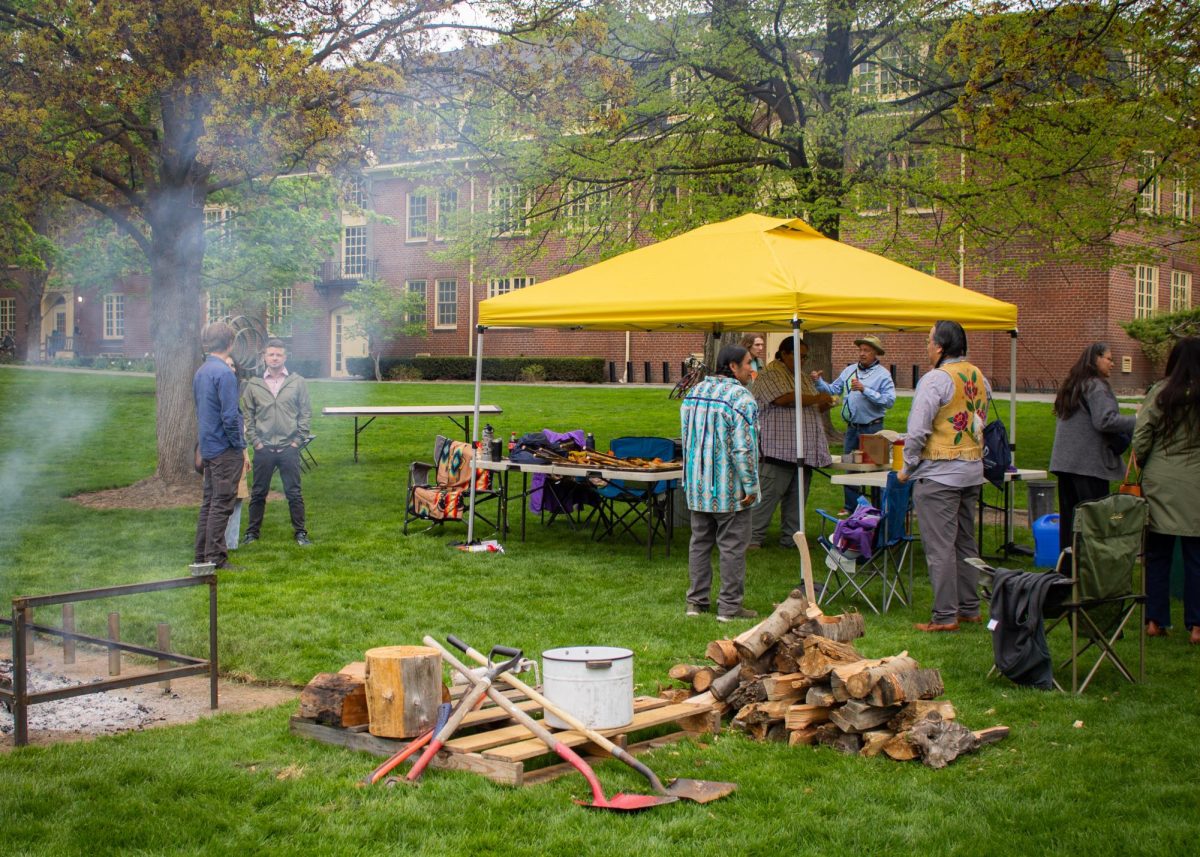On Monday, April 29, over 200 members of the Whitman and Walla Walla community came together amidst cries of “Now is the time!”
In honor of nationally renowned environmental activist and author Bill McKibben’s campus visit, member of Whitman’s Campus Climate Challenge organized a march around campus and collected petition signatures so that students and locals alike could show their support for the divestment campaign.
“I had never led a march before, and I was astounded that we had that [much] energy on the campus. Not just in the students, but there were professors on that march; there were community members on that march; there were staff members on that march,” said divestment leader sophomore Collin Smith.
At the end of the march, ASWC President Kayvon Behroozian publicly endorsed the divestment movement. ASWC passed a resolution on April 14 encouraging the Board of Trustees to halt all new investments in fossil fuels and to assemble a committee of students, faculty, staff and members of the governing board to investigate the potential financial impacts of divestment, as well as the potential for active shareholding or green investment managers.
“After [McKibben’s] talk I was a lot more persuaded than I was before,” said Behroozian. “The one thing I’d do is try to get everyone to go convince their friends that this is not a radical movement, that it’s a completely conservative [movement].”

McKibben began the day of his visit by giving a plenary speech to Whitman first-years in Cordiner Hall, all of whom read his book “Eaarth” as part of the Trauma and Transformation unit of the Encounters syllabus. This unit also included Toni Morrison’s “Beloved” and Art Spiegelman’s “Maus.”
“Eaarth” is the first environmental text to be included in the Encounters syllabus, which was revised last year. Professor of Politics Phil Brick recommended “Eaarth” as a new addition to Encounters and arranged McKibben’s visit to campus so that students could gain a deeper understanding of the text.
Professor of Politics and Director of Encounters Paul Apostolidis believes that hearing an author speak is a hugely beneficial opportunity for Encounters students.
“It’s like when students had the opportunity to watch the staging of ‘The Tempest’ rather than just reading Shakespeare’s text. When you have the opportunity to do the really crucial work of reading the written word and handling the text in written form, and then you can have that together with a more live and in-person staging of what that text is all about, it opens up different avenues for interpreting what’s going on,” he said.
McKibben is glad to have been a part of the Encounters experience.
“I feel very honored … [“Beloved” and “Maus”] are classic texts, and about epochal moments in human history,” said McKibben.

Then at 7:30 p.m in Cordiner Hall McKibben gave a lecture addressing “Eaarth” and his organization 350.org, a leader in the national movement to divest from fossil fuels.
Brick hopes that McKibben will be an inspiration for students interested in environmental activism.
“I hope [students] come away inspired, but also as a result of conversations we’ve had on campus … they come out of the lecture with a more sophisticated understanding of the scale of the problem, but not let the scale overshadow ways in which climate can help us think of way we could live better lives,” said Brick.
He has certainly made an impact for members of the Whitman divestment campaign. These student activists met with McKibben to discuss campaign strategies in the afternoon. They plan to present the petition signatures they collected to the Board of Trustees at their meeting on May 2.
First-year Erika Longino, a member of the Whitman divestment campaign, hopes that they will inspire other students to work for change.
“I feel like there’s a lot of pent-up frustration behind the climate change issue; it’s something you hear about in the news every day, it’s something that all the freshmen are reading in their classes right now. Having an outlet for that after the event, showing that there are students who are activists who are working to do something, it will be a good statement and a way for it to open up to the rest of campus.”














